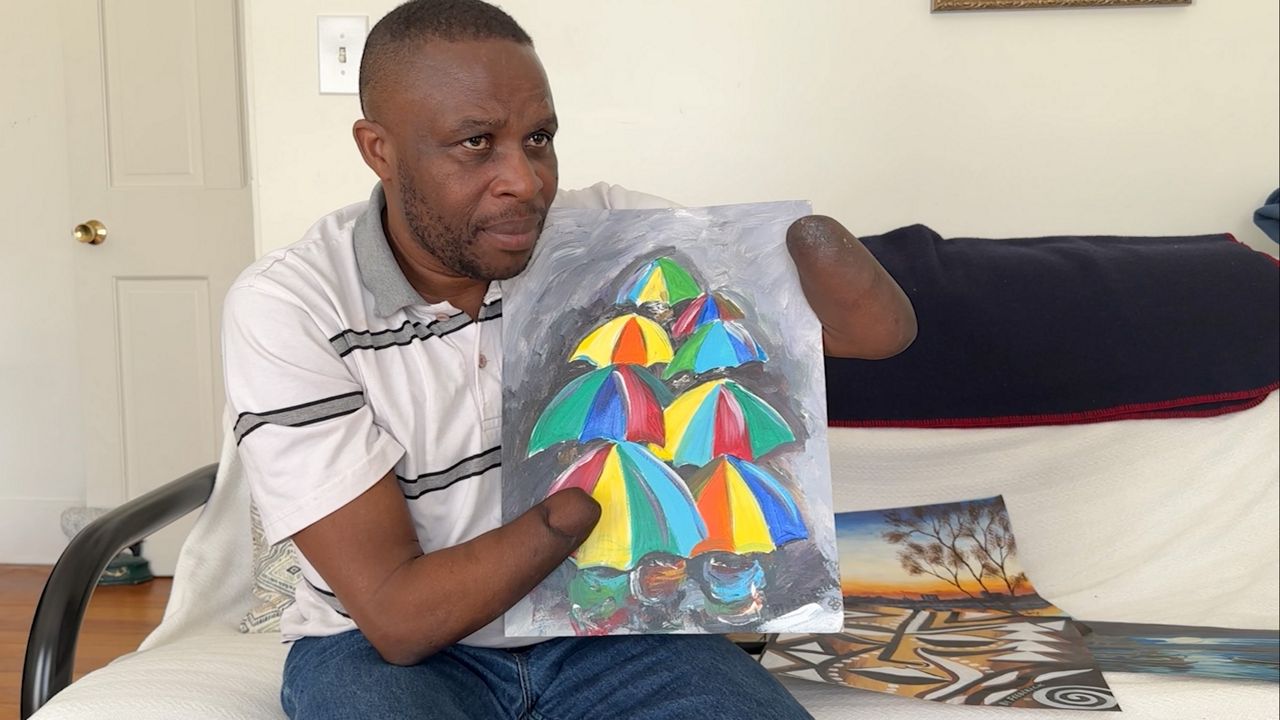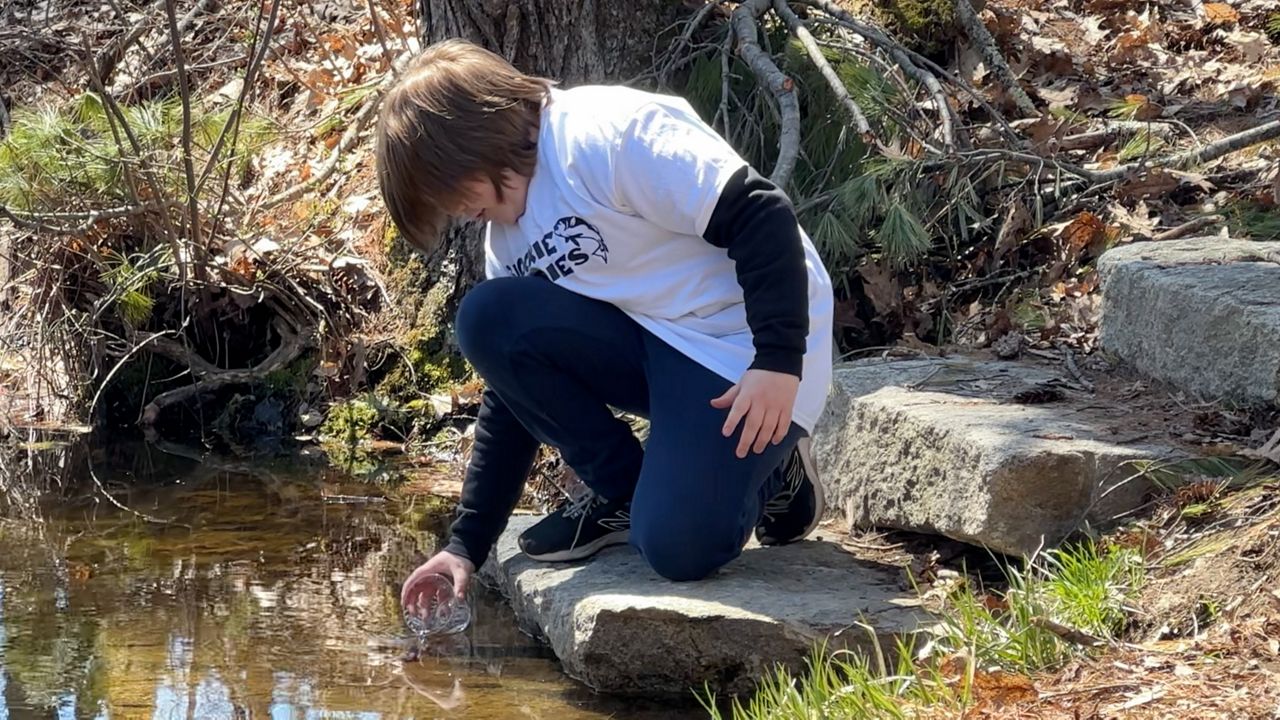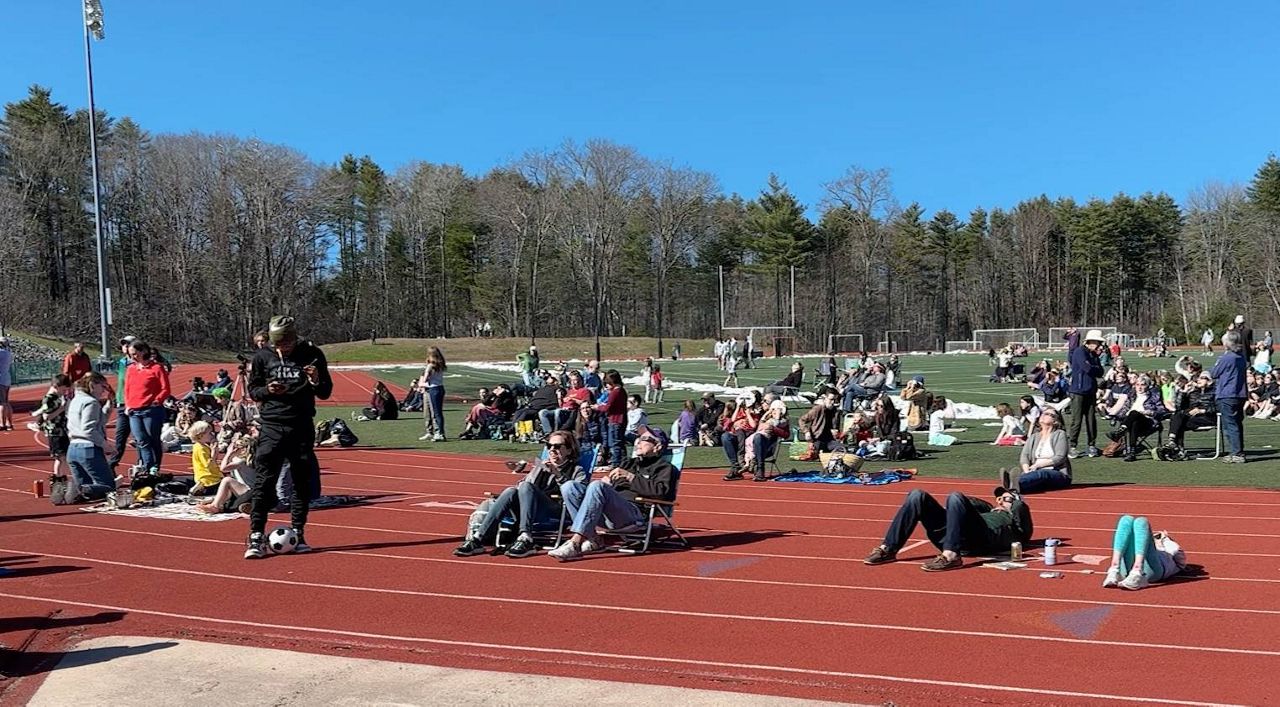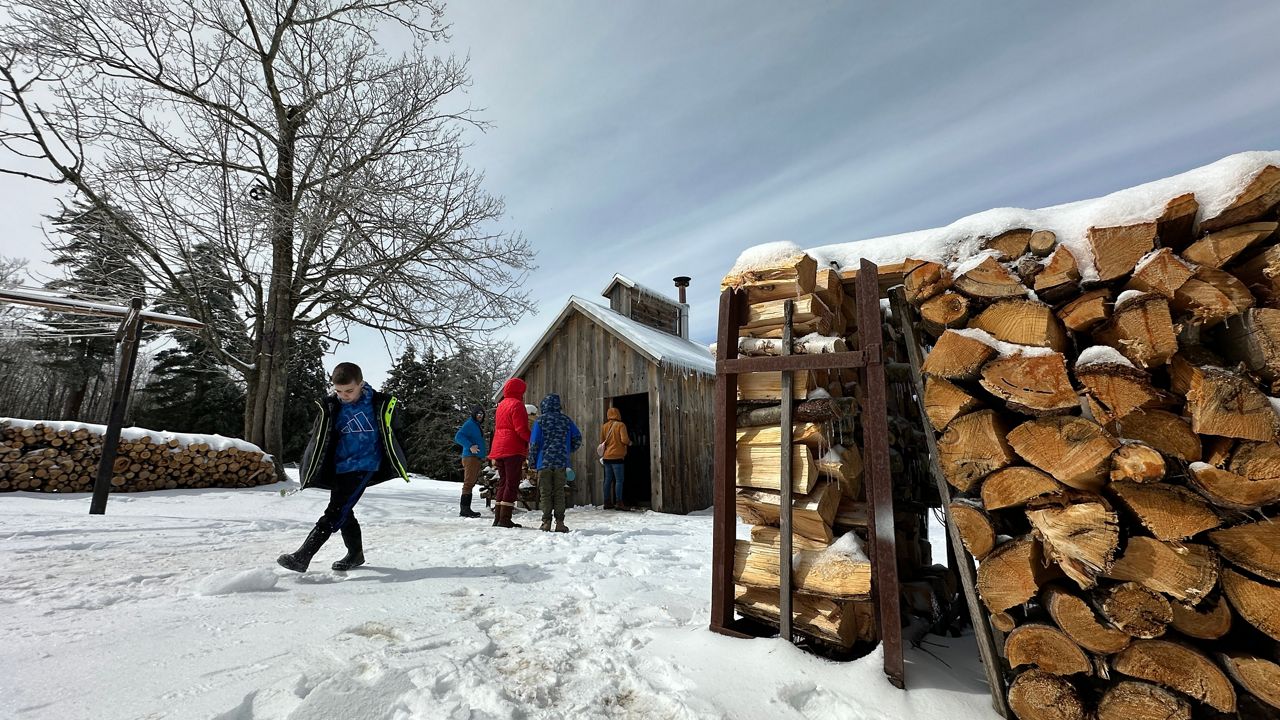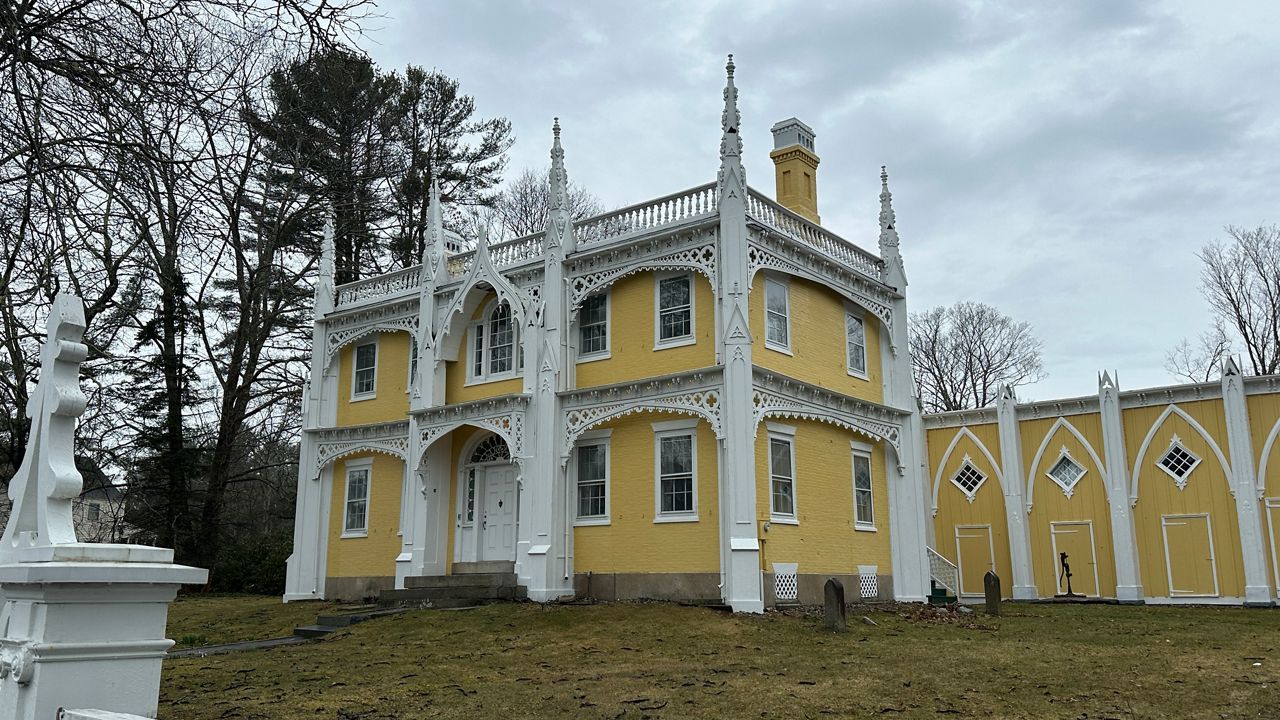Without the use of one’s hands, it is difficult to imagine how one could paint a picture at all, let alone use art for self-fulfillment.
But Frederick Ndabaramiye, a native of Rwanda now living in Portland, is doing both. For him, art is a vehicle, carrying him on a journey away from fear, pain and near-madness brought on by an encounter with violent extremists more than 20 years ago.
Ndabaramiye, 41, shows few signs of emotional scarring from his ordeal. He smiles easily and is eager to talk about his love of bright colors, what he brings from his native country to his work and what inspires him in his new home.
Ndabaramiye grew up in a nation torn by violence and genocide. Ndabaramiye managed to avoid becoming a victim himself until one day in 1997. He was on his way to visit his aunt when the bus he was traveling in was ambushed by soldiers of the Interahamwe paramilitary group.
As he watched other occupants of the bus murdered, Ndabaramiye, then aged 15, was offered a chance to join their ranks. When he refused, they amputated his hands with a machete and left him for dead.
“To that point I just lost my mind,” he said.
He walked three hours to the nearest house for help. He was in a hospital in a coma for six months before waking up and being transferred to an orphanage.
In the immediate aftermath, Ndabaramiye dwelled upon hate and hopelessness, all while trying to figure out how to function.
“I just learned how to live again, just like a baby born,” he said.
As part of his therapy, he used the two stumps of his forearms to hold and manipulate a pencil to draw a butterfly. He didn’t know it then, but that first drawing was the beginning of his healing, starting with the positive feedback he received at the orphanage.
Adults who worked there told him he was very good at it. Other children, who had been afraid of him initially, warmed to him quickly as he continued to explore his new skills.
“When I see that, that people like it, it encouraged me to do more,” he said.
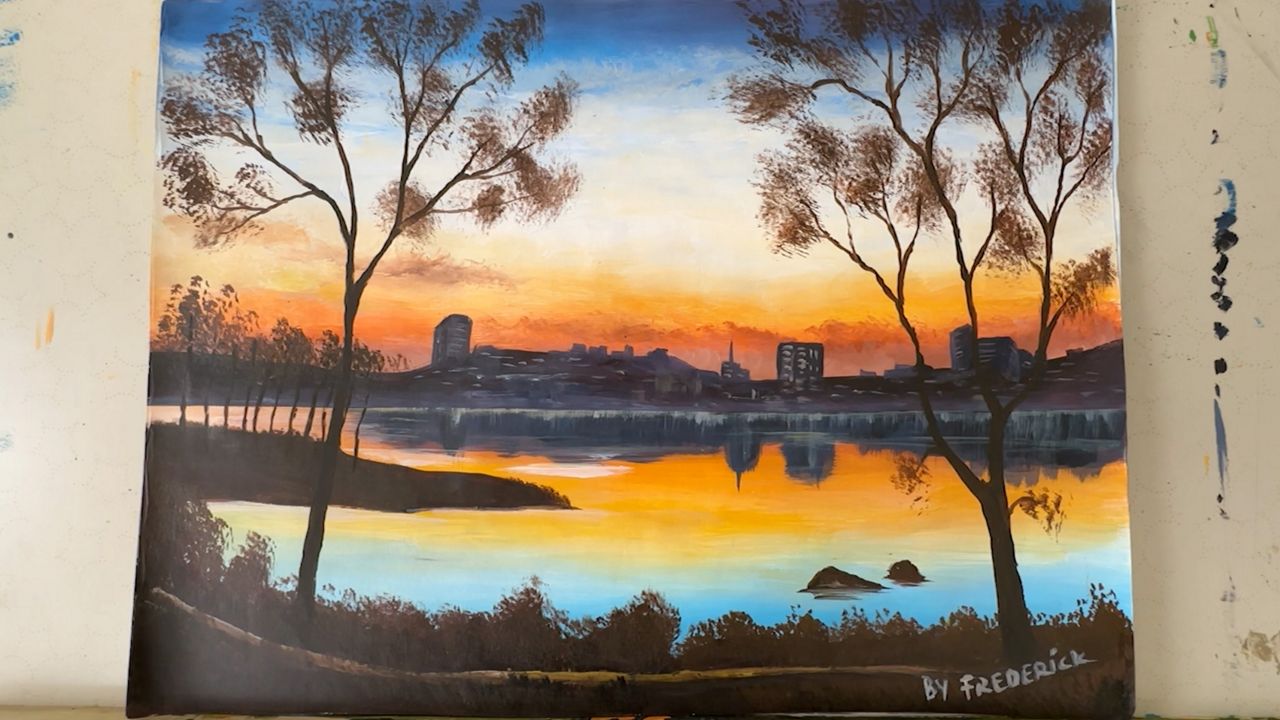
One of the workers, an American, encouraged Ndabaramiye to first come to America in 2003.
He lived in Columbus, Ohio, for a time, and published his experiences in a book titled “Frederick: A Story of Boundless Hope.”
Eventually, Ndabaramiye made his way to Portland, arriving last year. He calls the city a “wonderful, welcoming place.”
All the while, Ndabaramiye has been improving his skills.
On a visit Tuesday, he showed off his work, painted in acrylics on paper. None of the pain and anger of a war refugee was apparent in the work. He showed off a beautiful image of two African women in bright dresses, surrounded by lush, green forest.
Another striking image depicted a decorative African mask, with geometric shapes in shades of brown contrasted with white. Another painting showed people paddling boats at night across Lake Kivu.
“(It) keeps me busy by thinking art, not thinking what happened to me,” he said.
But Ndabaramiye’s work is not merely about his homeland. He also showed off an image of the Portland skyline seen from the Back Cove Trail. Another depicted Portland as seen from the shore of South Portland, looking across Casco Bay.
His paintings, which also include works in oils, have gotten some local attention. Several Portland-area galleries have displayed his pieces, and the Roux & Cyr Gallery also plans to host a presentation by Ndabaramiye, where he will talk about what art means to him.
Ndabaramiye’s work is also on display through February at the University of Southern Maine’s Lewiston campus at 51 Westminster St.
“Most of this I do it just to show myself that there’s more opportunity and talent,” he said. “It becomes my tool.”





